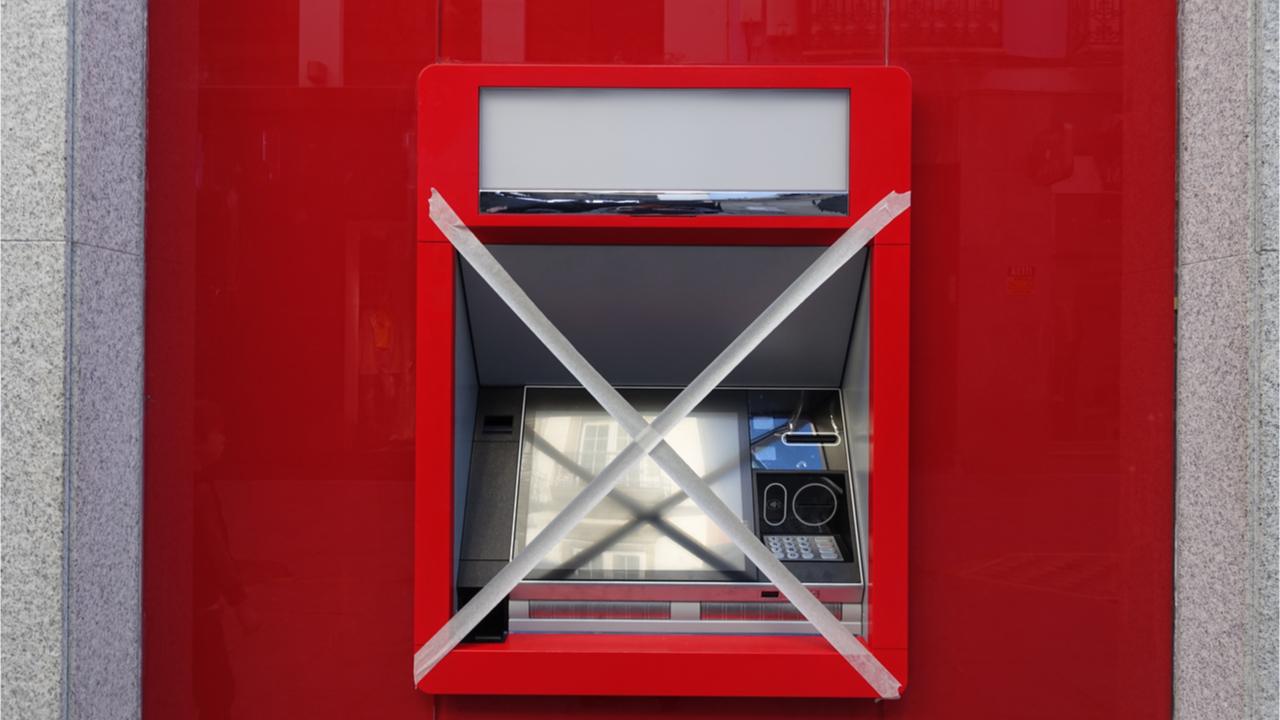
U.K. watchdog, the Financial Conduct Authority (FCA), has told firms running crypto ATMs in the country that they are operating illegally and must therefore shut down their machines. Operators that fail to heed the warning will face enforcement action, the FCA said.
Crypto ATM Providers Operating Illegally
The U.K. financial sector watchdog, the Financial Conduct Authority (FCA), has said it asked cryptoasset service providers that operate crypto ATMs to “shut their machines down or face enforcement action.” The watchdog insisted that since none of the crypto firms that it has registered is approved to operate a crypto ATM, any one of these companies that operates one in the U.K. is doing so illegally.
In a statement released on March 11, 2022, the FCA suggested that the decision to go after crypto ATM operators of the reported 81 machines came after a U.K. judge had ruled against one crypto ATM operator, Gidiplus.
According to the statement, Gidiplus wanted the country’s Upper Tribunal to allow it to continue trading while it waits for the determination of its appeal — an appeal against the FCA’s decision to refuse its application for registration under the Money Laundering Regulations (MLR). However, the judge hearing the case reportedly determined that there was “a lack of evidence as to how Gidiplus would undertake its business in a broadly compliant fashion.”
The FCA, in the meantime, said it had found that some 110 crypto firms that were on its list of unregistered crypto firms are now no longer operational. The watchdog concludes its statement by warning consumers about the risks of trading cryptocurrencies. The statement says:
We regularly warn consumers that cryptoassets are unregulated and high-risk which means people are very unlikely to have any protection if things go wrong, so people should be prepared to lose all their money if they choose to invest in them.
FCA’s Stance on the Use of Crypto to Evade Sanctions
Meanwhile, in a different statement, the FCA clarified that the country’s financial sanctions regulations “do not differentiate between cryptoassets and other forms of assets.” The watchdog added that any “use of cryptoassets to circumvent economic sanctions” is therefore determined to be a criminal offense under the Money Laundering Regulations 2017, and regulations made under the Sanctions and Anti-Money Laundering Act of 2018.
The FCA’s warning comes as concerns are voiced that sanctioned Russian entities will attempt to use cryptoassets to evade sanctions. Nevertheless, the watchdog said in the statement that it “has already written to all registered cryptoasset firms and those holding temporary registration status to highlight the application of sanctions on various entities and individuals.”
What are your thoughts on this story? Tell us what you think in the comments section below.
Comments
Post a Comment